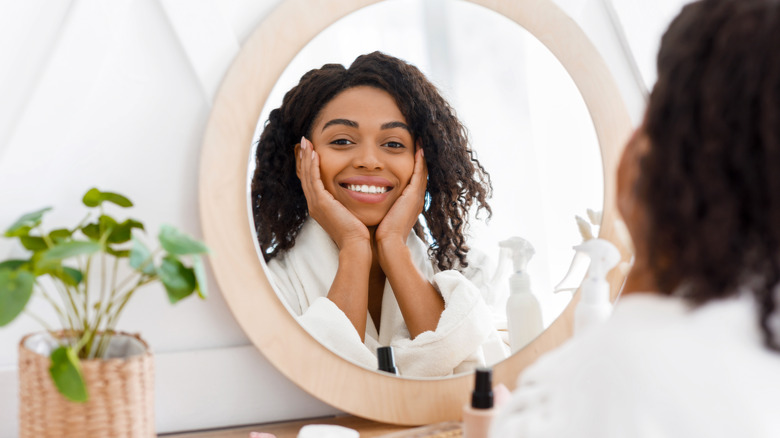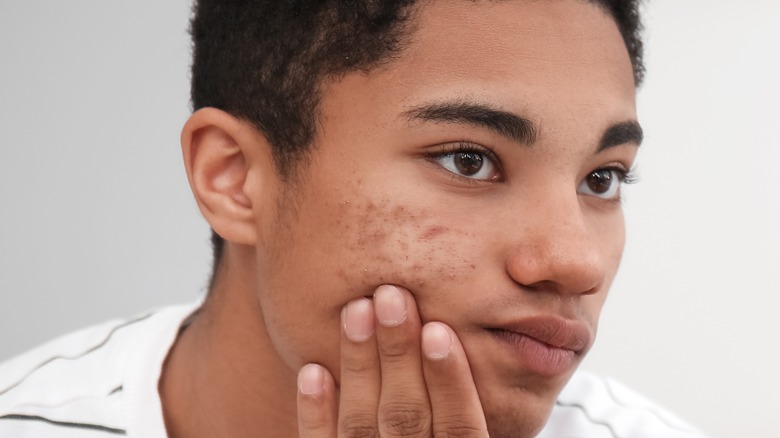Tips For Protecting Your Complexion
Aging is a completely normal process of life, but sometimes a disheartening one, especially when it comes to skincare. As we age, our skin naturally changes both subtly and not-so-subtly. Age spots, skin tags, wrinkles, bruises, and dry skin start popping up as the skin becomes more fragile and loses its plumpness (via National Institute on Aging). Everything is more visible, and tiny scrapes take longer to heal. While there's no formula to reverse time or the slow aging process, there are some simple tips for protecting your complexion.
For starters, it's important to begin protecting your skin as soon as possible. According to WebMD, the skin begins to age as early as the mid-20s from sun exposure, genetics, and daily routines. Even though aging signs may not be visible to the naked eye, starting protection early may help. That being said, you may want to consider using a gentle cleanser to wash your face, followed by a lightweight moisturizer and sunscreen, points out WebMD. This should be done every day to protect your skin.
Beyond paying attention to the skincare products you use, it's equally important to recognize the key nutrients that support glowing skin from the inside out. For instance, vitamin A is an essential nutrient for skin health. It can treat acne, fight hyperpigmentation, and repair damage from sun exposure (per Healthline). It's also an anti-wrinkle fighter, as it protects collagen, explains a 2019 study published in Advances in Dermatology and Allergology.
More healthy skin tips for your face
There are other vitamins and minerals that support healthy skin. Similar to vitamin A, vitamin C is another powerful vitamin that helps maintain healthy skin. According to a 2017 study published in Nutrients, vitamin C protects the skin from ultraviolet (UV) light damage. Large amounts of it can be found in the skin, where collagen production takes place.
On the other hand, vitamin D is equally as important for skin health. Healthline explains that it may even be one of the most important vitamins for your skin, as it supports healthy cells and skin tone. Other vitamins that are great for skin health are vitamin K and vitamin E (per Healthline).
When it comes to beneficial skin minerals, zinc and selenium are at the top of the list (per WebMD). Zinc helps your skin heal, whereas selenium fights UV damage.
While supplementation can be a great tool, it's not meant to replace a healthy diet. Research shows getting vitamins and minerals from naturally-occurring food sources are better than supplements, as pills often work in isolation, explains Better Health Channel. The best way to add more of these vitamins and minerals is through a healthy diet full of colorful fruits and vegetables.


